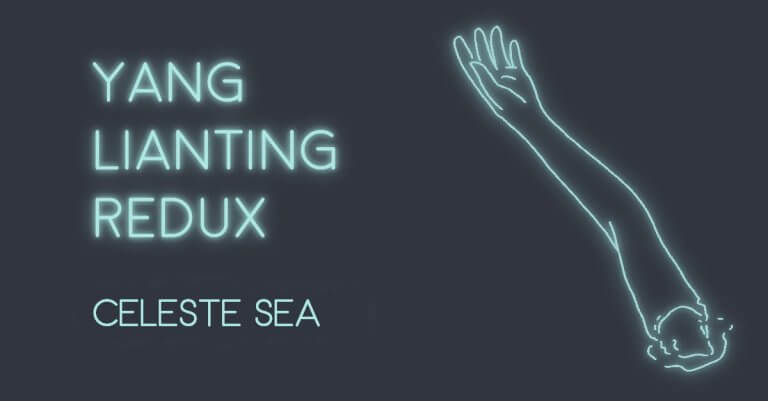
YANG LIANTING REDUX by Celeste Sea
After the first time we fucked, she pissed on me. A whim. It had felt sacred, hot and vicious, and we’d laughed as the piss slid down onto my waiting tongue.

After the first time we fucked, she pissed on me. A whim. It had felt sacred, hot and vicious, and we’d laughed as the piss slid down onto my waiting tongue.
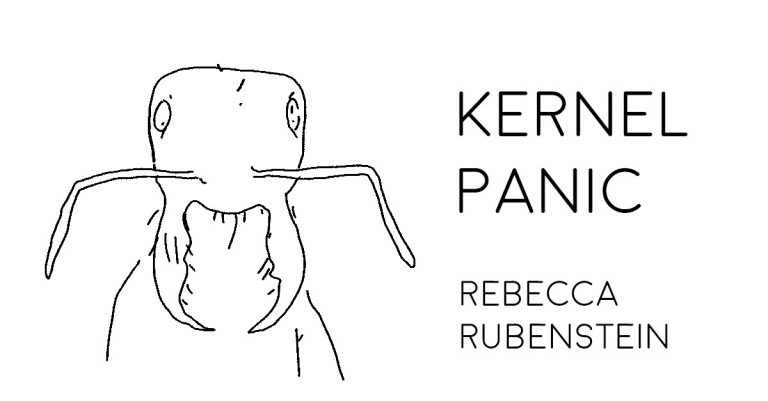
When his mind went blank, Benno walked to the water store. Smack-dab in the middle of a strip mall a block downhill from his apartment, it was the kind of place that didn’t pull punches. It sold water, and vessels with which to hold water, and that was it. Water cooler jugs lined the walls on one side, and empty aquariums formed a barricade on the other, and the floors teemed with pallets of imported bottled water—glacier runoff from Iceland and Switzerland and all the lands. Metallic shelving flanked each side of the store, and on those shelves sat sturdy,
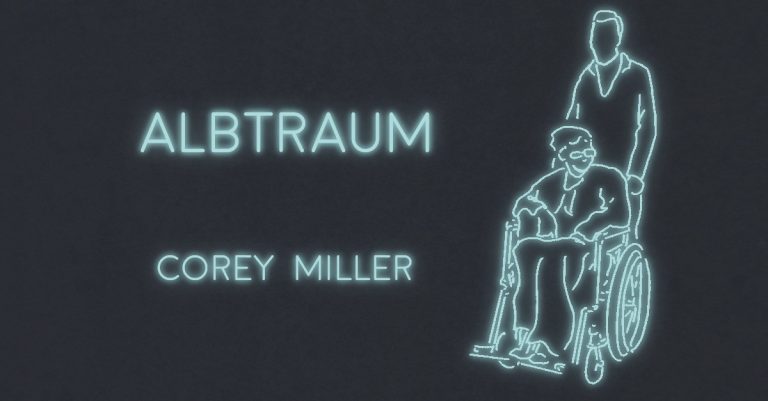
I coax Mother’s wheelchair through Newark terminal to our United gate. I pray she knows where she is—where she is going. I can’t understand her anymore; sensing death she no longer speaks in English. She dreams of her hometown, Essen, Germany. Unaccustomed mother tongue, I download Duolingo on my iPhone to learn Deutsche. To decipher her code. Returning Mother to her homeland, I use all of my sick days from work, expecting to catch a bug at some point throughout the year. I’ve never traveled outside of America. My passport on the verge of expiring. Mother’s lips are as tight
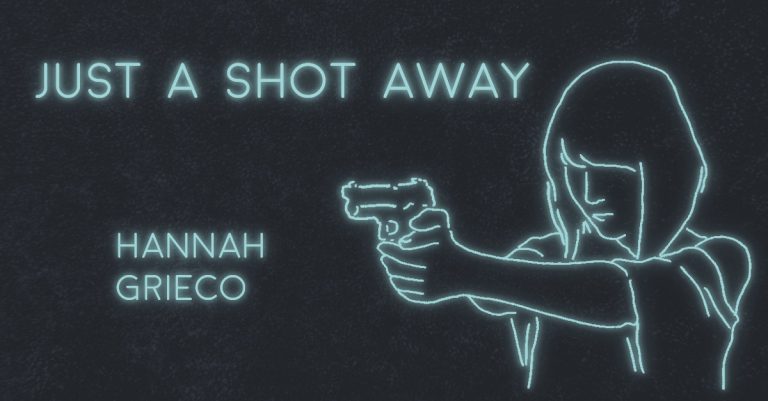
I can picture Mark’s face, the surprised V between his eyes as he watches the news. Or answers his phone at 2AM. Or opens the door to two police officers. Who knows how he first finds out? But I know he’s shocked, absolutely floored, in full denial. This has to be a mistake, he insists. Nat would never, she barely even— We have video footage, they tell him. We have a clip of your wife shooting a pretty blonde bank teller right in the face. And Mark says, my wife? Natalie? She couldn’t— We have another one of her blowing
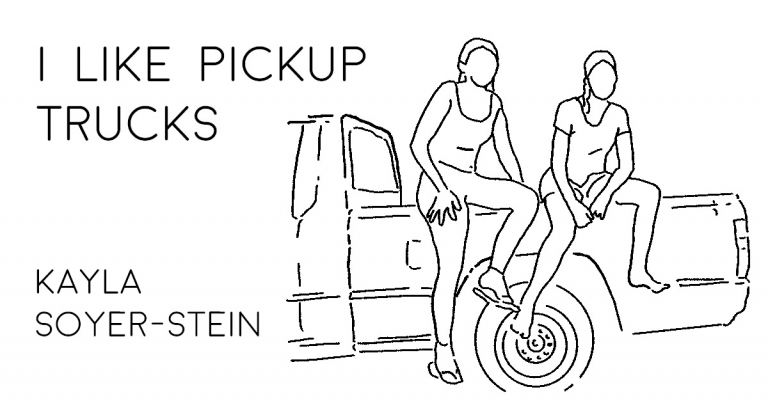
Here is what I am doing this summer: 1) Drinking. 2) Riding around in the backs of pickup trucks. There’s not much else to do on this island. Tonight me and Kate think we are the drunkest we’ve ever been. We are outside the bowling alley and looking up at the sky at this one star, which is chasing us all over the place and about to fall on Kate’s head. LOOK OUT, I scream and Kate covers her face and falls all over me, knocking me down, and we both lie in the wet grass and laugh like witches.
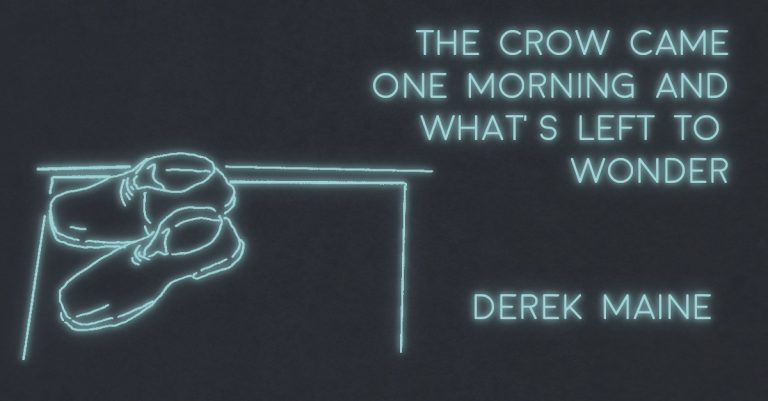
He takes his shoes off by the door. A solemn peek in the hotel mirror suggests pleated pants, starched shirt, taut tie, he’s running out of matching letters to describe his appearance which is always, and only, just that. To himself he appears as an apparition. Do others see him, he wonders often. The meetings today went well. He sold himself. Passed himself off as one of them. Someone they could trust. Someone they could have a beer with. At a baseball game. A hot dog too. He is not that someone. He hasn’t had a beer in some very
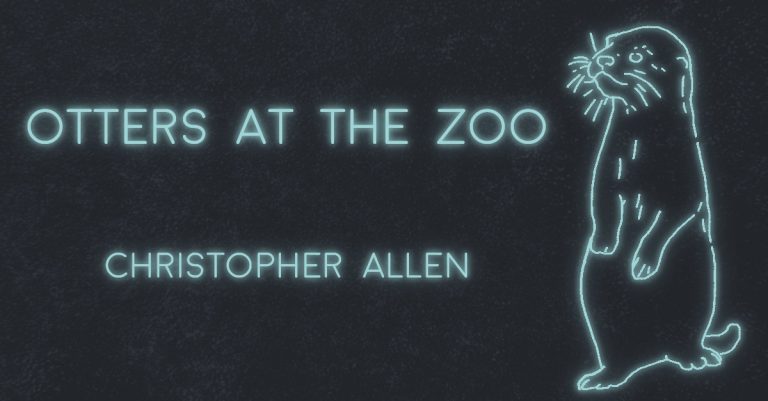
My imaginary son is learning about otters in imaginary third grade. He has to write a report. I think he’s a bit young for reports, but his imaginary teacher, Mrs. Florida, thinks otherwise. Two hundred words. Due Monday. So I plan a trip to the imaginary zoo though my imaginary son says the fastest way to learn about otters is the Internet. He spends all his internet time reading about sea otters. He’s an official member of the Otter Appreciation Society. Did you know, he says, that otters can talk? He whistles, growls, says he’s learning Otterish, says he doesn’t
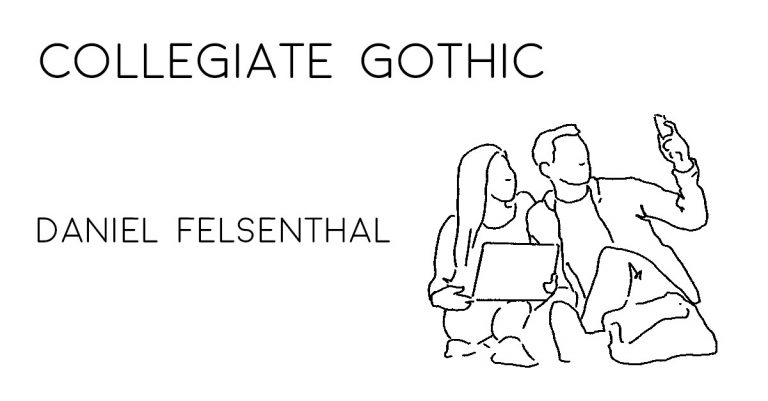
Summer I met Miles on move-in day after my advising troop finished doing icebreakers and trust falls. Actually, I met his dad first. “Herman Kahn,” said a man wearing a fleece embroidered with the mascot of our university on the breast, and beneath it, the words Class of ‘72. He extended his hand as though he were a freshman himself, but looked at his son, and their dance gave the impression of a family whose dynamics were more important than people outside of the family. “Miles! Care enough about someone other than yourself to meet your neighbor?” “I told you
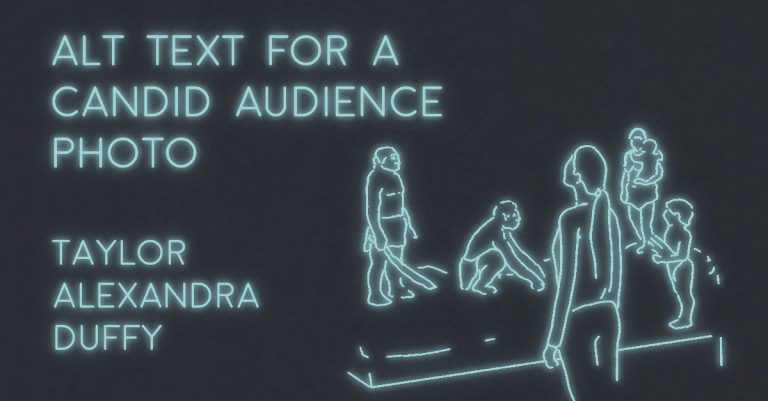
<img src=“201704WomanInAudience.png” alt=“This is one of several candid photos of me, gaze upturned and listening intently at a museum lecture, the sharp worry on my face readily apparent, though I laugh self-consciously at the thoughtfully placed jokes. It’s night, and we’re gathered in the formerly Koch-funded planetarium, and we’re here thanks to some shared sense of scientific inquiry or the open bar. On stage is a prominent researcher in her field, and her lecture is titled Stress and Human Evolution. She’s patiently describing how our grandchildren’s genes will be irreversibly warped by our suffering, calmly listing the collective atrocities she
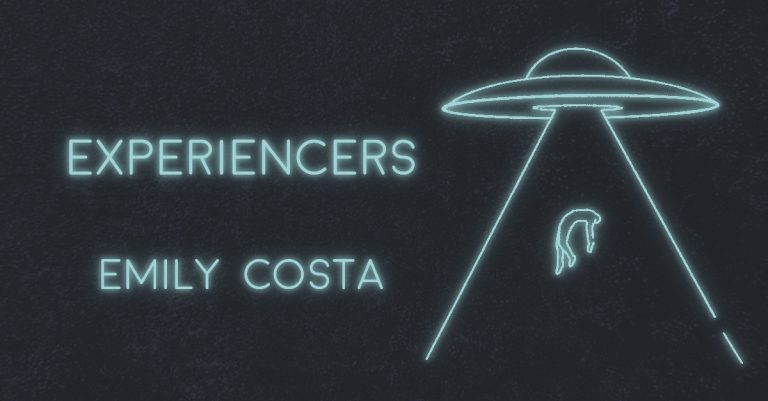
Your girlfriend believes that at some point during the last year or so her father has been abducted by aliens and replaced with a human-like shell. She believes visits still happen, routinely and systematically, that they must pull him up there with that classic tractor beam, or else he meets them somewhere in the woods, and they do tests and probe him and check on his progress. Progress with what, you wonder, but she’s still talking. She says they return him dead-eyed. She’s got it all laid out. She keeps a little journal by her bed to jot down the
